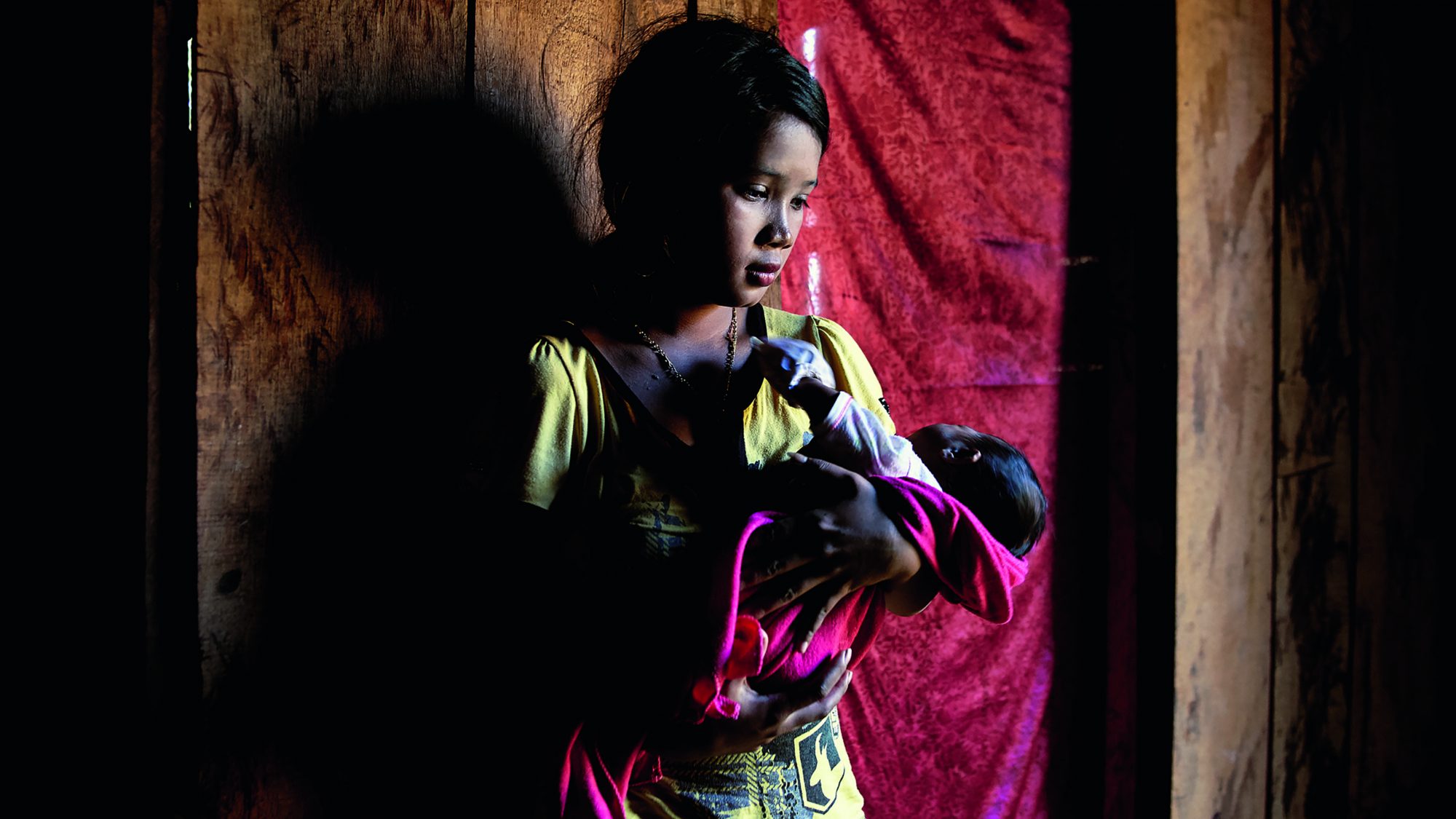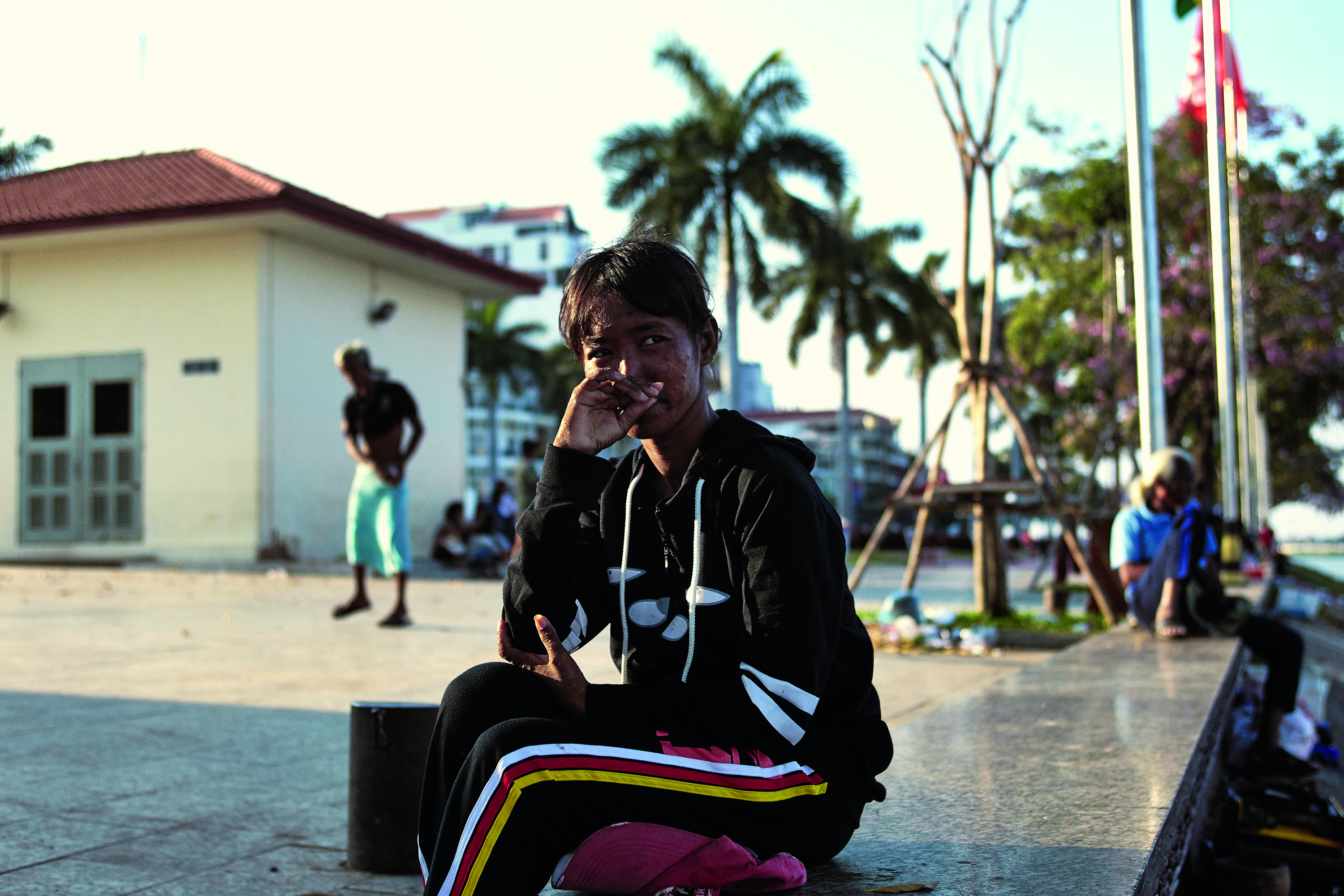Here's why teenage mothers in Cambodia are in crisis and what you can do to help
As rates of teenage pregnancy escalate across Cambodia, so too are the numbers of young mothers going without food − with devastating consequences. Corinne Redfern reports

As rates of teenage pregnancy escalate across Cambodia, so too are the numbers of young mothers going without food − with devastating consequences. Corinne Redfern reports
It’s been three weeks since 17-year-old Choun Nita gave birth to her daughter, Choy Manich, and 36 hours since she last ate any food. Her breast milk has nearly dried up and she needs to steady herself against the wall as she stands. ‘I don’t know what to do,’ she whispers. ‘My baby is so small and weak. I’d do anything to keep her alive, but this is all I have. I’m scared I’ll have to give her away.’ Her husband refuses to provide money for formula milk, she adds.
Nita’s story is echoed by thousands of girls across Cambodia, where the teenage pregnancy rate has doubled since 2010, with babies handed over to ‘orphanages’, non-governmental organisations and grandparents alike, as their young mothers struggle to find work in factories, rubbish-dump sites and karaoke bars. They dream of raising their family, but high divorce rates (older husbands often disappear) and a deeply ingrained Cambodian tradition dictating ‘men eat first’ means they simply can’t afford to feed their children.
Sern Sreyoun, 19, nods as she hears of Nita’s experiences. She too was unable to feed her infants when they were born. Fast forward to present day, and she now doesn’t know what her five-year-old son Septven’s favourite game is, or where her three-year-old daughter, Dina, slept last night. She doesn’t even know if they go to school, let alone where they live. ‘Last year, my mother said I wasn’t feeding [my children] enough, and that they would be better off in an orphanage,’ the teenager explains. ‘She took them in the middle of the night when I was asleep, and travelled for two hours to Phnom Penh to give them away. She won’t tell me who to, but they’re so little. Every night, I lie awake and imagine them crying. What if nobody knows how to make their tears stop?’

It’s been five days since Sreyoun has eaten, and her vision is flecked with stars. She got engaged when she was at school, after her parents accepted the proposal from a classmate on her behalf in return for two sacks of rice. ‘As we couldn’t afford a ceremony, they sent me away from our hut to consummate the marriage without any warning,’ says Sreyoun. ‘I was so scared that I ran away and slept outside every night for two weeks. My husband complained I wasn’t fulfilling my duties, and my mum told me that my father had already eaten half of the rice and that we couldn’t afford to pay it back. That night, I went to his bedroom and gave in.’ Within a year, the teenager was pregnant. ‘I was so young and so thin, I didn’t have breast milk,’ she remembers. ‘One of my neighbours told me to mix sugar with rainwater to feed my baby.’ Septven developed severe diarrhoea and began losing weight. ‘I didn’t have the money to take him to the hospital,’ she says. My husband refused to help me − he said he was my baby, and my responsibility.’
Touch Sreypin can also relate. At 16, working as a scavenger on one of Phnom Penh’s largest dump sites, she is seven months pregnant with her second child. ‘I think I love my husband, but he insists on eating all the food,’ says Sreypin. ‘He says he is hungrier than me because he is a man. I don’t want to give my children away, but I think about it sometimes. I often have to feed my daughter sugar and water to make her stop crying, then I drink only water myself for three or four days in a row. Sometimes, I feel so weak I have to sit down.’
On the other side of the country, in Mondulkiri, doctors say 50 per cent of children show signs of malnutrition. ‘I see their mothers demonstrating the same symptoms,’ says Peang Sreytoch, a senior midwife in the rural community of Dak Dam, on the border of Vietnam. ‘I am treating increasing numbers of teenage girls who have been forced into marriage. Their families are so hungry that they believe one less mouth to feed will make things better, but then the girl gets pregnant immediately, and she doesn’t receive any support.’
Celebrity news, beauty, fashion advice, and fascinating features, delivered straight to your inbox!
For Sreyoun, without her children, there’s little for her to focus on. Her husband has left her, and the village shuns her for failing her family. ‘I used to hate my mother for giving my babies away,’ she says. ‘Now, when I close my eyes, I picture my children growing big and tall. I hear them laughing, and I imagine them eating until they don’t ever want to eat any more. But when I open my eyes, my face is always wet.’
Find out more about Corinne’s ‘Crying Hunger’ series on Instagram (www.instagram.com/cryinghunger). For more information on how you can help, visit friends-international.org. This report was funded by the European Journalism Centre.